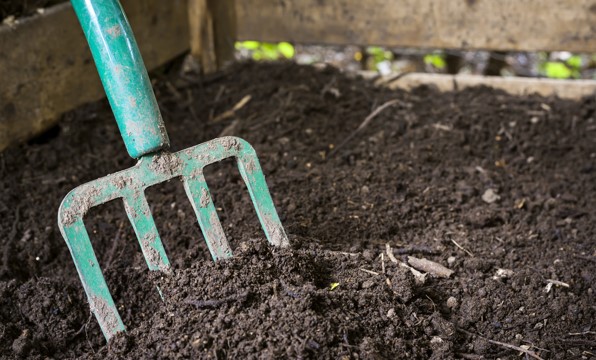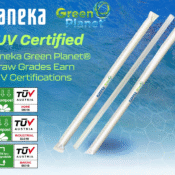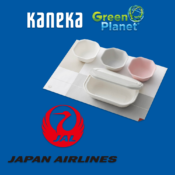
February 13, 2024
/
Home Compostable vs. Industrial Compostable: Understanding the Difference
In the quest for sustainability, compostable products have gained significant attention as eco-friendly alternatives to traditional plastics. However, not all compostable materials are created equal. Understanding the distinction between home compostable and industrial compostable is crucial for making informed choices that align with your environmental goals.
What Are Home Compostable and Industrial Compostable Products?
1. Home Compostable: Home compostable products are designed to break down in a typical backyard composting environment. They are made from organic materials such as plant-based plastics, paper, or natural fiber. These materials decompose into nutrient-rich compost that can be used to enrich soil.
2. Industrial Compostable: Industrial compostable products require specific conditions to decompose effectively. They are typically processed in large-scale composting facilities where temperature, moisture, and microbial activity are carefully controlled. Industrial composting can handle a wider range of materials, including some plastics that may not break down in home composting systems.
Key Differences:
1. Composting Conditions: Home compostable products can degrade in backyard compost bins, where temperatures may not reach the levels achieved in industrial composting facilities. They rely on natural microbial activity and ambient conditions. In contrast, industrial compostable items need higher temperatures and controlled environments to decompose efficiently.
2. Time to Decompose: Home compostable materials often break down more slowly than their industrial counterparts. While industrial compostable products may decompose within weeks in the right conditions, home compostable items may take several months or longer to fully degrade.
3. Certifications: Both types of compostable products may carry certifications to indicate their compostability. Look for certifications such as the Biodegradable Products Institute (BPI) certification for industrial compostable items or the Home Compostable certification from organizations like the Australasian Bioplastics Association for products designed for home composting.
4. End-of-Life Options: Industrial compostable products are suitable for municipal composting systems but may not break down effectively in backyard compost bins. On the other hand, home compostable items are ideal for individuals or communities practicing composting at home, offering a convenient way to divert organic waste from landfills.
Making Informed Choices:
1. Consider Your Composting Setup: Evaluate whether you have access to industrial composting facilities or if you compost at home. Choose products that align with your composting capabilities to ensure effective decomposition.
2. Check Certifications: Look for reputable certifications on compostable products to verify their compostability claims. Certifications provide assurance that the product meets established composting standards.
3. Read Disposal Instructions: Follow the manufacturer's disposal instructions to ensure proper decomposition of compostable items. Some products may require specific disposal methods to break down effectively.
4. Reduce and Reuse: While compostable products offer an eco-friendly alternative to conventional plastics, reducing consumption and reusing items whenever possible remain essential strategies for minimizing environmental impact.
Conclusion:
Home compostable and industrial compostable products play distinct roles in sustainable waste management. Understanding the differences between these two types of compostable materials empowers consumers to make informed choices that support their composting practices and environmental objectives. By selecting compostable products suited to their composting setup and adhering to proper disposal guidelines, individuals can contribute to a more sustainable future.
What Are Home Compostable and Industrial Compostable Products?
1. Home Compostable: Home compostable products are designed to break down in a typical backyard composting environment. They are made from organic materials such as plant-based plastics, paper, or natural fiber. These materials decompose into nutrient-rich compost that can be used to enrich soil.
2. Industrial Compostable: Industrial compostable products require specific conditions to decompose effectively. They are typically processed in large-scale composting facilities where temperature, moisture, and microbial activity are carefully controlled. Industrial composting can handle a wider range of materials, including some plastics that may not break down in home composting systems.
Key Differences:
1. Composting Conditions: Home compostable products can degrade in backyard compost bins, where temperatures may not reach the levels achieved in industrial composting facilities. They rely on natural microbial activity and ambient conditions. In contrast, industrial compostable items need higher temperatures and controlled environments to decompose efficiently.
2. Time to Decompose: Home compostable materials often break down more slowly than their industrial counterparts. While industrial compostable products may decompose within weeks in the right conditions, home compostable items may take several months or longer to fully degrade.
3. Certifications: Both types of compostable products may carry certifications to indicate their compostability. Look for certifications such as the Biodegradable Products Institute (BPI) certification for industrial compostable items or the Home Compostable certification from organizations like the Australasian Bioplastics Association for products designed for home composting.
4. End-of-Life Options: Industrial compostable products are suitable for municipal composting systems but may not break down effectively in backyard compost bins. On the other hand, home compostable items are ideal for individuals or communities practicing composting at home, offering a convenient way to divert organic waste from landfills.
Making Informed Choices:
1. Consider Your Composting Setup: Evaluate whether you have access to industrial composting facilities or if you compost at home. Choose products that align with your composting capabilities to ensure effective decomposition.
2. Check Certifications: Look for reputable certifications on compostable products to verify their compostability claims. Certifications provide assurance that the product meets established composting standards.
3. Read Disposal Instructions: Follow the manufacturer's disposal instructions to ensure proper decomposition of compostable items. Some products may require specific disposal methods to break down effectively.
4. Reduce and Reuse: While compostable products offer an eco-friendly alternative to conventional plastics, reducing consumption and reusing items whenever possible remain essential strategies for minimizing environmental impact.
Conclusion:
Home compostable and industrial compostable products play distinct roles in sustainable waste management. Understanding the differences between these two types of compostable materials empowers consumers to make informed choices that support their composting practices and environmental objectives. By selecting compostable products suited to their composting setup and adhering to proper disposal guidelines, individuals can contribute to a more sustainable future.




